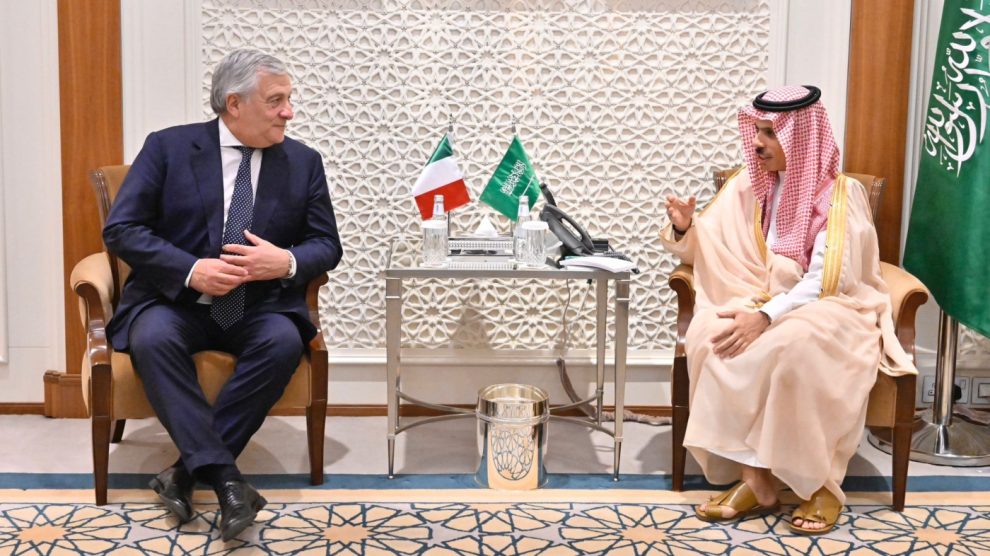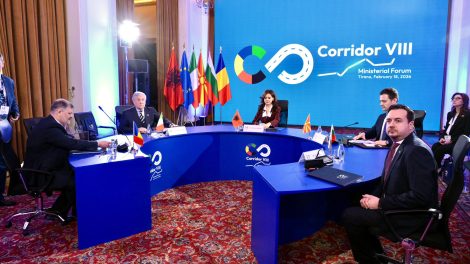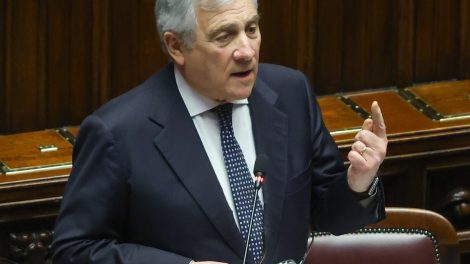His interview with Riyadh Daily outlines a clear trajectory: Rome and Riyadh are turning their relationship into a multidimensional platform spanning security, energy, technology, and regional diplomacy. The backdrop is this week’s Business Forum, which brings together hundreds of companies from both sides and signals a phase of structured, long-term cooperation.
The big picture: Tajani calls Saudi Arabia “a strategic partner for Italy… with relations dating back to 1932.”
- He argues the relationship has evolved into “a dynamic, future-oriented alliance” that now includes political coordination, energy, infrastructure, innovation, culture, and defence.
- Saudi commentators see the visit as a direct continuation of the AlUla summit between Crown Prince Mohammed bin Salman and Prime Minister Giorgia Meloni, widely viewed as the turning point that elevated the bilateral relationship.
Zoom in: how Riyadh sees it. Abdulhadi Habtoor, columnist for Asharq Al-Awsat, says the visit carries “remarkable political and economic weight” and extends the momentum created by the AlUla meeting, which he describes as “a major turning point” in consolidating the strategic partnership.
- He notes that Vision 2030 is opening significant opportunities across defence, energy, infrastructure, culture, and innovation sectors in which Italian companies’ reliability and technical capabilities are highly valued.
- Habtoor sees the Riyadh Business Forum, with more than 900 participating companies, as the culmination of years of intensified engagement and the foundation of “sustainable industrial partnerships.”
- He stresses that Italy’s decision to classify Saudi Arabia as a priority destination in its National Export Strategy will accelerate cooperation and usher in “a more mature phase” in economic relations.
What Tajani said: security and diplomacy. Tajani stresses close coordination with Foreign Minister Prince Faisal bin Farhan on Gaza and reiterates Italy’s commitment to a “just, safe, comprehensive and lasting peace.”
- He cites the Joint Declaration on Gaza, signed in Rome in August, and Italy’s role at the New York conference on the two-state solution, where Rome co-chaired — at Saudi request — the working group on security.
- Humanitarian engagement is part of this framework. Tajani says Italy will continue supporting the “Food for Gaza” initiative, highlighting the country’s role in receiving Palestinian patients in need of medical care.
Energy, technology and industry: the drivers of the partnership. On the economic front, Tajani describes a relationship in rapid expansion: trade up 67% since 2020, double-digit annual growth in Italian exports, and €4.5 billion in Italian FDI.
- He calls the alignment between Vision 2030 and Italy’s industrial strengths “natural,” citing advanced manufacturing, energy systems, infrastructure, design, and digital technologies, including AI.
- He also signals a shift from a procurement-based model to an industrial integration model, especially in defence, green technologies, and cultural tourism.
The long arc: 1932–2025. Saudi political analyst Mubarak Al-Ati places the partnership in a long historical continuum, recalling that the first bilateral agreement was signed in 1932. He highlights the Strategic Partnership Council agreements of 2021 and 2025 as key pillars supporting rising trade volumes and new collaborations in energy, green hydrogen, and investment.
- Al-Ati notes a relationship marked by “clarity and convergence” on regional issues, including Palestine, counter-extremism, and regional stability. He points out that more than 70 Italian companies now operate in the Kingdom, and argues that Italy could become a gateway for Saudi renewable hydrogen and ammonia exports to Europe.
Between the lines:
- The Italy–Saudi Arabia relationship is shifting from opportunistic to structural.
- Italy is anchoring part of its foreign policy strategy in the Gulf.
- Saudi Arabia sees Italian capabilities as a catalyst for Vision 2030.
- Diplomatic alignment on Gaza reinforces political trust.
The bottom line: Tajani arrives in Riyadh at a moment when Rome and Riyadh are upgrading their relationship into a multi-layered strategic partnership, grounded in political convergence, complementary energy interests, and deepening industrial cooperation. For both sides, this is an axis built to last beyond political cycles.





